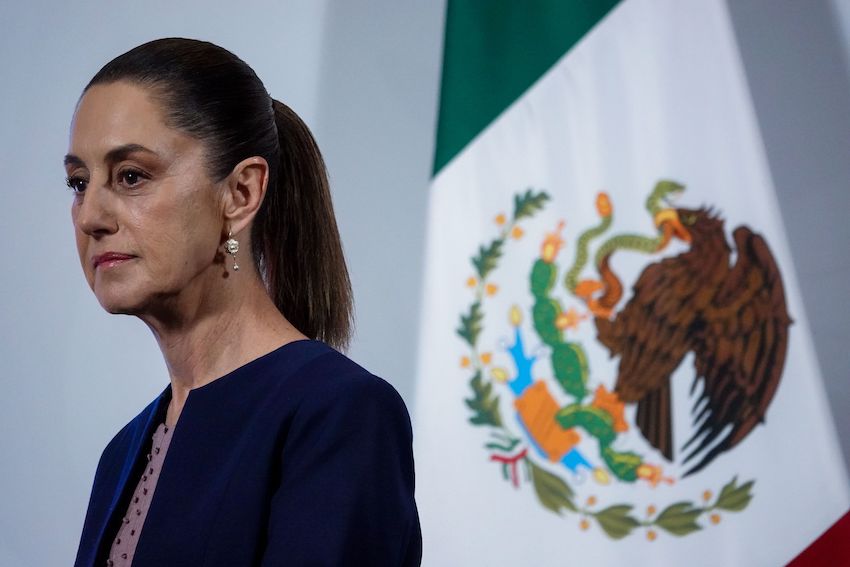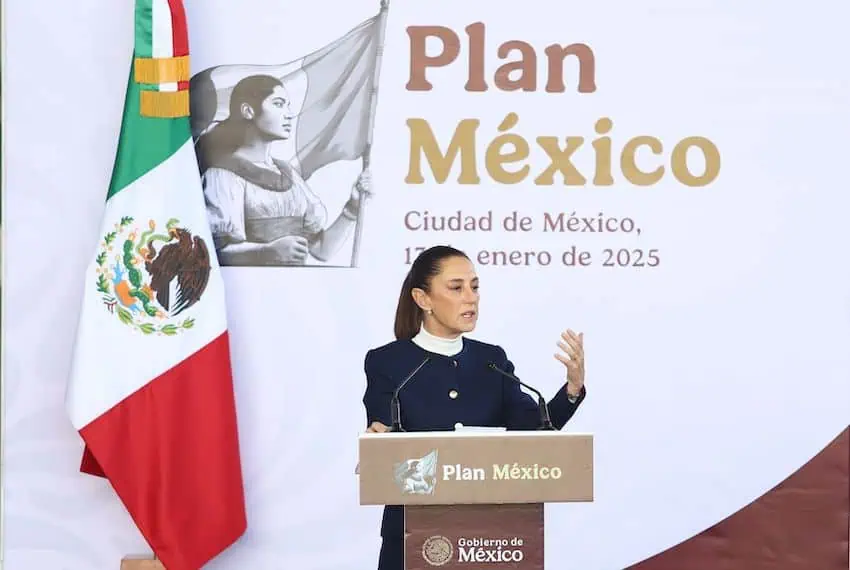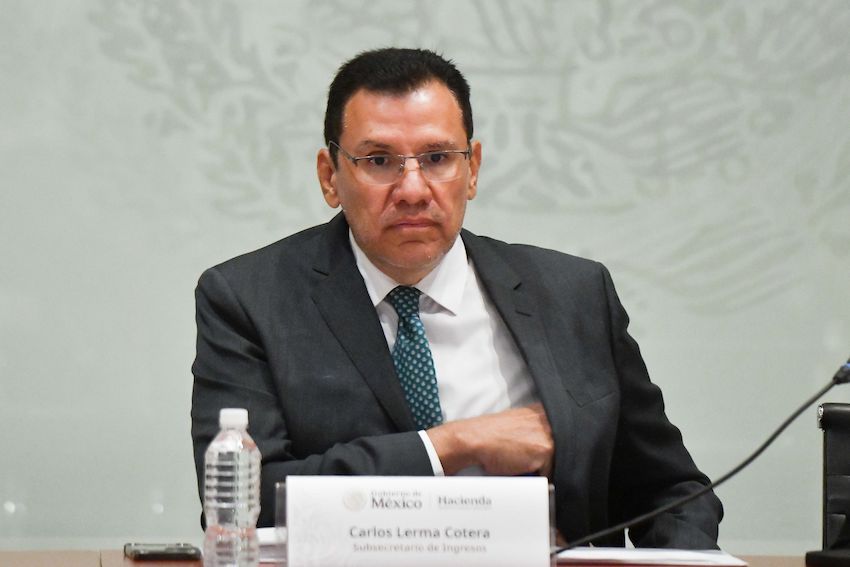Mexico is planning to impose new tariffs on imports from countries with which it doesn’t have a free trade agreement, a move that appears primarily aimed at China.
President Claudia Sheinbaum is seeking congressional approval to implement tariffs of up to 50% on goods from such countries, sending an initiative to the Chamber of Deputies on Tuesday that aims to modify the Law on General Import and Export Taxes.

The initiative — related to Mexico’s 2026 budget proposal — proposes tariffs of between 10% and 50% on a wide range of goods, including ones made in the automotive, textile, plastic, steel, clothing, toy, footwear, furniture, paper and glass sectors.
The legislative proposal is consistent with the Mexican government’s aim to reduce reliance on imports and protect Mexican industry. Those goals are set out in the ambitious Plan México industrial policy, which was unveiled in January.
Approval of the reform initiative appears inevitable, considering that the ruling Morena party and its allies dominate both houses of Congress.
Sheinbaum had indicated that her government was looking at imposing new tariffs on imports from countries with which Mexico doesn’t have trade agreements. The Bloomberg news agency reported late last month that the Mexican government intended to increase tariffs on Chinese imports.
Mexico’s outlay on Chinese goods has increased in recent years, and the country’s trade deficit with the East Asian economic powerhouse hit a new record high in the first six months of 2025.
Mexico’s growing trade relationship with China, and Chinese investment in Mexico, are seen as a potential stumbling block for the Mexican government in the 2026 review of the United States-Mexico-Canada Agreement (USMCA), the North American free trade pact that superseded NAFTA in 2020.
Good news for Trump: Mexico is planning to raise tariffs on Chinese imports
Imposing higher tariffs on imports from China will likely go some way to appeasing the governments of the U.S. and Canada, both of which have critically questioned Mexico’s economic ties with the world’s second-largest economy.
United States President Donald Trump has even accused Mexico of being a transshipment hub for Chinese goods — i.e. a tariff-free or low-tariff backdoor to the United States market. The Mexican government denies the allegation.
Reform bill seeks to support Mexican industry and jobs, and ‘balance’ foreign trade
Sheinbaum’s reform bill states that its aim is to “take advantage of our internal market so that production takes place in Mexico and employs Mexican workers.”
At the same time, the legislative proposal seeks to contribute to the “balancing” of foreign trade for the “well-being” of “all Mexicans.”
“For years,” the reform bill states, “the national economy became integrated into global value chains, under frameworks that favored the importation of inputs, which led to the loss of essential productive sectors and a growing vulnerability to external shocks.”
“Trade liberalization, while expanding markets, did not always translate into greater technological capacity or an increase in national content in our exports. With this proposal, inspired by Plan Mexico, this trend will be corrected, and national industry will be strengthened given the international trade context and global reconfiguration,” it says.
The reform bill sets a goal of having “at least 50% of strategic supplies” being made in Mexico.
It also states that “tariffs are no longer seen solely as a means of raising revenue, but become a strategic tool for economic and trade policy.”

Another aim of the tariff plan is to attract new investment to Mexico, just like Trump is seeking to lure foreign companies to the U.S. with his protectionist agenda.
“Due to existing international policies, … it is necessary to implement concrete actions that enable a balanced market interaction in order to avoid economic distortions that could affect the relocation [to Mexico] of the productive sectors considered strategic for the country,” the bill says.
The legislative proposal states that imports from countries with which Mexico has a free trade agreement will not be subject to the new proposed tariffs. Existing agreements — Mexico has pacts with around 50 countries — will continue to govern that trade.
What products will be subject to the new tariffs?
The new tariffs are slated to apply to goods imported under 1,371 tariff codes, a figure equivalent to 16.8% of all of Mexico’s tariff codes.
The reform bill proposes the implementation of duties at rates of 10%, 20%, 25%, 30%, 35% and 50%. The tariffs would initially be imposed on Dec. 31, 2026, but their application could be extended.
Among the goods that will be subject to higher tariffs if Sheinbaum’s initiative is approved are:
- Steel rods and pipes, and rolled steel.
- Some auto production inputs.
- Aluminum products.
- Footwear.
- Cardboard boxes.
- Fabrics and bedding.
- Bathroom fixtures such as sinks and toilet parts.
- Shampoo and other personal hygiene products.
- Water pumps.
- Fans.
Mexico already collects tariffs on hundreds of goods from China and other countries with which it doesn’t have trade agreements, including Chinese vehicles, which have become very popular among Mexican motorists.
Economy Minister Marcelo Ebrard said Tuesday that the imposition of tariffs on Chinese products is “a measure to try to reduce” Mexico’s trade deficit with China, which exceeded US $57 billion in the first six months of 2025.
“Light vehicles, plastics, electronic parts,” he said, listing some of the imports set to face higher tariffs.
“… Every time [the deficit with China] goes up, we’ll have fewer companies in Mexico,” Ebrard told reporters at a business event in Monterrey.
“We have to try to protect our companies with a reasonable strategy, because you can’t put tariffs on everything either,” he said.
New tariffs to generate revenue of 70 billion pesos annually, official says
Deputy Finance Minister Carlos Lerma told a press conference on Tuesday that the new tariffs would generate an additional 70 billion pesos (US $3.76 billion) in revenue for the government.
He stressed that the tariffs will be imposed “within the framework of the international [trade] treaties” Mexico has with dozens of nations around the world.

Finance Minister Edgar Amador said that the tariffs would be imposed in accordance with World Trade Organization guidelines. He also said that the government would be sensitive to any impacts the tariffs might have on production and prices in Mexico.
Gabriela Siller, director of economic analysis at Banco Base, said on X on Wednesday that the imposition of tariffs could have a “positive” impact on government income and “could help to maintain a favorable relationship with the administration of Donald Trump,” which has been pressuring Mexico to increase tariffs on imports from China.
However, Siller asserted that the duties will “generate inflationary pressures in Mexico” because “19.96% of Mexico’s imports come from China.”
“With respect to imports directed to the final consumer, passenger vehicles are of concern because 18.1% of sales in Mexico are of Chinese origin,” she wrote.
In a separate post on Wednesday, Siller said that 29% of Mexico’s car imports will be “affected by the 50% tariff announced yesterday.”
Amador didn’t single out China as a target of Mexico’s proposed tariffs, but acknowledged that their implementation would happen “within the discussion and future commercial conversations with our North American partners” ahead of the review of the USMCA next year.
However, he stressed that the “main motivation” for the tariffs is “the Plan México strategy, the goal of strengthening production” in Mexico.
A spokesman for the Chinese government, Guo Jiakun, spoke out against any move to put additional tariffs on China’s exports to Mexico in August, the Associated Press reported.
“Mexico is China’s second-largest trading partner in Latin America, and China is Mexico’s third-largest export destination,” he said.
“China firmly opposes restrictions imposed on China under various pretexts and under coercion from others, which harm China’s legitimate rights and interests,” said the spokesman of the Ministry of Foreign Affairs of China.
With reports from Milenio, Reforma, La Jornada, Animal Político, Aristegui Noticias, El Universal, AP and Reuters
